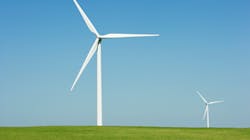Virginia to Embrace Clean Energy Future
The Virginia Senate recently passed the Virginia Clean Economy Act, after the House of Delegates’ approval of the bill. Governor Ralph Northam is now clear to join leaders in the General Assembly in allowing the state’s energy system to unlock the enormous economic and environmental potential renewable energy sources can bring to the Commonwealth.
The Virginia Clean Economy Act will create a state renewable energy portfolio system (RPS) program, similar to those already implemented in 29 other states, Washington, DC, and Puerto Rico. The Virginia RPS requires 30% or more of Virginia’s electricity to come from renewable energy sources by 2030. By 2050, the Act requires 100% of Virginia electricity to be zero-emissions.
The Act includes measures to harness wind and solar power, expand consumer ownership through rooftop solar, and reduce energy waste through mandatory efficiency standards. Notably, the legislation also includes a 5.2-GW offshore wind target — one of the largest state commitments to offshore wind to date and one with the potential to power up to 1.5 million Virginia homes.
The Act also solidifies Virginia’s participation in the Regional Greenhouse Gas Initiative (RGGI) cap-and-invest program. To date, the program has provided net benefits of over US$4 billion to participating members, while helping them slash carbon emissions over 50%.
The American Wind Energy Association (AWEA) applauded leaders in the Assembly for supporting the measure, which will drive substantial clean energy investments across Virginia, transitioning Virginia toward a more prosperous, more productive, and lower-carbon energy future.
"The forward-thinking and comprehensive Virginia Clean Economy Act will foster economic development across Virginia, reduce carbon emissions, and allow the Commonwealth to embrace the many advantages that clean energy technologies are already delivering to other parts of the country," said Tom Kiernan, AWEA CEO. "This pro-business legislation means access to high-paying jobs in the Commonwealth and serves as a model for other states to follow on the path to a safer, more resilient, and more reliable energy future."
